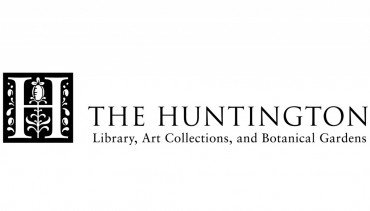The Huntington

A private, nonprofit institution, The Huntington was founded in 1919 by Henry E. Huntington, an exceptional businessman who built a financial empire that included railroad companies, utilities, and real estate holdings in Southern California
Library
The Library’s collection of rare books and manuscripts in the fields of British and American history and literature is nothing short of extraordinary. For qualified scholars, The Huntington is one of the largest and most complete research libraries in the United States in its fields of specialization. For the general public, the Library has on display some of the finest rare books and manuscripts of Anglo-American civilization. Altogether, there are about 6 million items.
Among the treasures for research and exhibition are the Ellesmere manuscript of Chaucer’s Canterbury Tales, a Gutenberg Bible on vellum, the double-elephant folio edition of Audubon’s Birds of America, and a world-class collection of the early editions of Shakespeare’s works.
The Huntington also is among the nation’s most important centers for the study of the American West, with an unsurpassed collection of materials that span the full range of American western settlement, including the overland pioneer experience, the Gold Rush, and the development of Southern California.
The Munger Research Center, the newest addition to the Library structure, adds 90,000 square feet of space for scholars and staff, preservation, conservation, and storage.
Art Collections
The Art Collections are distinguished by their specialized character and elegant settings in three separate galleries on the Huntington grounds. A fourth space, the MaryLou and George Boone Gallery, hosts changing exhibitions. The Huntington Art Gallery, originally the Huntington residence, contains one of the most comprehensive collections in this country of 18th- and 19th-century British and French art. It serves as home to Gainsborough’s Blue Boy and Lawrence’s Pinkie. On display in the Virginia Steele Scott Galleries of American Art, The Huntington’s American art collection includes works from the 1690s to the 1950s, including important paintings such as Mary Cassatt’s Breakfast in Bed, Frederic Edwin Church’s Chimborazo, and Edward Hopper’s The Long Leg.
Botanical Gardens
The Botanical Gardens are an ever-changing exhibition of color and a constant delight. Covering 120 acres, more than a dozen specialized gardens are arranged within a park-like landscape of rolling lawns. Among the most remarkable are the Desert Garden, the Japanese Garden, the Rose Garden, and the Chinese garden. The camellia collection is one of the largest in the country. Other important botanical attractions include the Subtropical, Herb, Jungle, and Palm gardens.
Research
Scholars come from around the world every year to conduct advanced humanities research using The Huntington’s collections. Through a rigorous peer-review program, the institution awards 120-130 grants to scholars in the fields of history, literature, art, and the history of science. Through the Huntington Library Press, the institution produces the Huntington Library Quarterly and several books each year. Scholarly pursuits lead to best-selling books, Pulitzer Prizes, acclaimed documentary films, and many of the history and social studies textbooks that educate the nation’s school children. Research activities at The Huntington also include scholarly conferences and workshops, symposia, special lectures, and a multitude of collaborations.
Readers (as scholars at The Huntington are known) registered to use the collections have included Nobel Laureates (Richard Feynman), Oscar winners (Katharine Hepburn), Grammy winners (Ian Whitcomb), and Pulitzer Prize winners (some 20 Pulitzer Prize-winning historians and other major prize winners have used the collections). Their work has cut across many fields: literature (Wallace Stegner), history (James McPherson, Irving Stone, and Gordon Wood), film and television (George Cukor and Ken Burns), and astronomy (Edwin Hubble), among others.